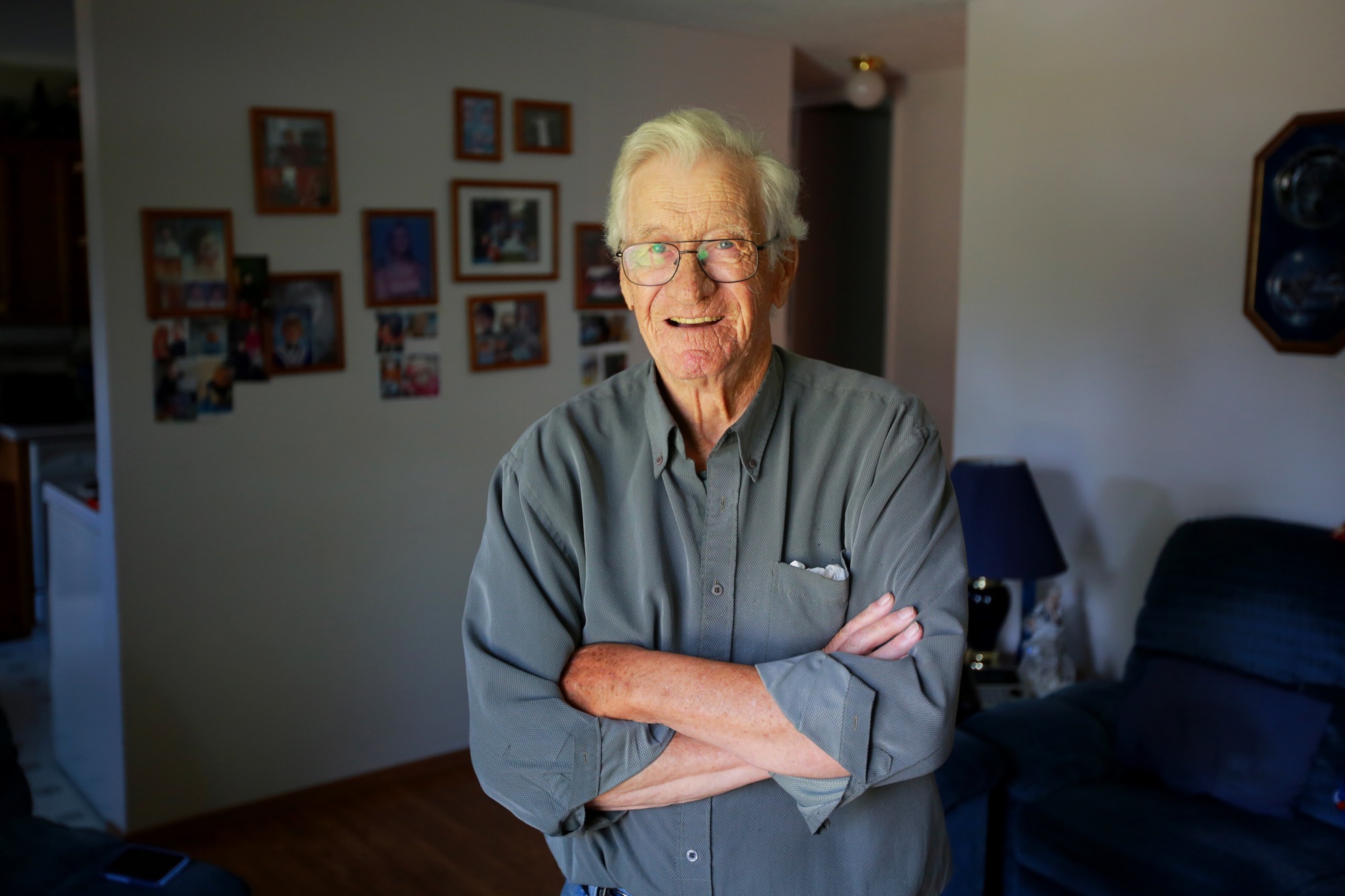Blog
-

‘They don’t give a damn’. Veteran speaks out after being denied Veterans Affairs funding for hearing aid.
 26 Jul , 2017
26 Jul , 2017
‘They don’t give a damn’. Veteran speaks out after being denied Veterans Affairs funding for hearing aid.
A decorated war veteran said he feels let down by his country after Veterans Affairs Canada refused him funding for a much-needed hearing aid.
Richard Leslie, a 92-year-old retired master warrant officer, is deaf in his right ear and cannot converse without an outdated hearing aid in his left ear — a consequence of his exposure to heavy artillery and explosions during the Second World War, he said.
Veterans Affairs has denied both his initial request for funding and his appeal. A letter from Veterans Affairs, which Leslie shared with The Brandon Sun, states that “according to our Departmental Entitlement Eligibility Guideline for Hearing Loss, there is no evidence you were exposed to enough noise during service to cause permanent decibel losses.”
The response is something Leslie takes issue with.
“I’m not even a citizen anymore. They’ve wrote me off as a nut. They don’t give a damn,” he said. “They took my blood, they took my energy, they took my life. Now when I want something back, they won’t give it to me. Some days you get a little ugly.”
Leslie joined the Canadian Forces in 1943, shipping off to England when he was only 19 years old.
“I landed in England in a bomb raid,” Leslie said, adding the experience was quite a shock.
Moving with the 1st Battalion Lincoln and Welland Regiment, Leslie was fighting along the Maas River as they attempted to cross the German lines.
“Unbeknownst to us, (the Germans) were breaking through on the bulge … there were 10,000 to 20,000 Germans ready to make a move,” Leslie said. “Three regiments were dashed down to the river and at exactly 5 o’clock in the morning every gun, artillery piece … tanks, plus all our guns fired at once. There were 10,000 shells in the air.”
The memories are still raw for Leslie, who broke down sobbing while sharing his experiences of war.
“We advanced and found a trench the Germans had used. We cleaned it up and put up sandbags and a machine gun,” Leslie said. “They were continuously shooting at us with machine guns. They brought the artillery down onto us … within 50 feet. My buddy said, ‘I think I can get that sniper, I can see him down behind that brick building.’ We had a little notch — a four-inch square in the sandbags — and a bullet came through and touched him.”
Leslie still remembers his friend sitting back with a gasp after being hit, leaning back in his chair to demonstrate how he fell. Leslie said he bandaged him up and checked for a pulse, but he was gone.
“Two and a half days later, I still had him with me. I still hadn’t got out of the trench. My hands were frozen, my feet were frozen,” Leslie said.
In an effort not to freeze to death, Leslie rolled himself out of the trench and was picked up and taken to a medical tent. His shoes had to be cut off his feet.
“I went through many battles, I had hearing problems (even back then),” Leslie said. “We had the guys running around with Red Cross patches on them. They were trained in first aid but they weren’t doctors … They’d give me some cotton batten and oil so (my ears) wouldn’t hurt, and I’d go back to duty.”
In the grand scheme of things, hearing was the last thing on anyone’s mind back then, Leslie said.
“I would wear cotton batten in my ears for weeks at time. They’d gradually get better, my ears would swell inside. But you’re walking, you’re talking, you’re still healthy. There’s only three ways of getting out of the front line — bleeding that they can’t stop, bones protruding or you’re dead,” Leslie said.
Now, the hearing loss is taking its toll.
Leslie is unable to answer or converse over the phone, as all he can hear is muffled noises. He says he often feels isolated, especially when out in public.
“It’s not the best. If I go out for supper and there’s six people at the table, I can’t understand any of them … I’m totally lost. So I sit back and shut up, which is hard for me to do,” Leslie said with a chuckle. “It separates you from people.”
When reached for comment, Veterans Affairs Canada said it could not comment on a specific veteran’s case, as the department is legally bound to protect client privacy and confidentiality.
“The care and well-being of veterans and their families is a priority for Veterans Affairs Canada, and we are committed to ensuring veterans have access to the services and benefits to which they are entitled,” a Veterans Affairs spokesperson said via email.
In 2015-16, the department made 5,247 hearing loss decisions, of which 55 per cent were favourable, the spokesperson said. Decisions are based on evidence presented and legislated eligibility requirements.
Leslie said he hasn’t given up, and is looking at other options he has — including going before the Veterans Review and Appeal Board with the assistance of a lawyer. However, the board is most likely in Winnipeg, and he doesn’t have approval from his doctor to travel.
Despite his disappointment with the department, Leslie said he doesn’t regret his career in the military.
“You’re always a proud soldier. I’m proud of what I’ve done, I’ve done my best,” Leslie said. “All I want is support now … I need support.”
Source: The Brandon Sun
Image credit: Tim Smith





























































































































































































































































































































































































































































































































































































